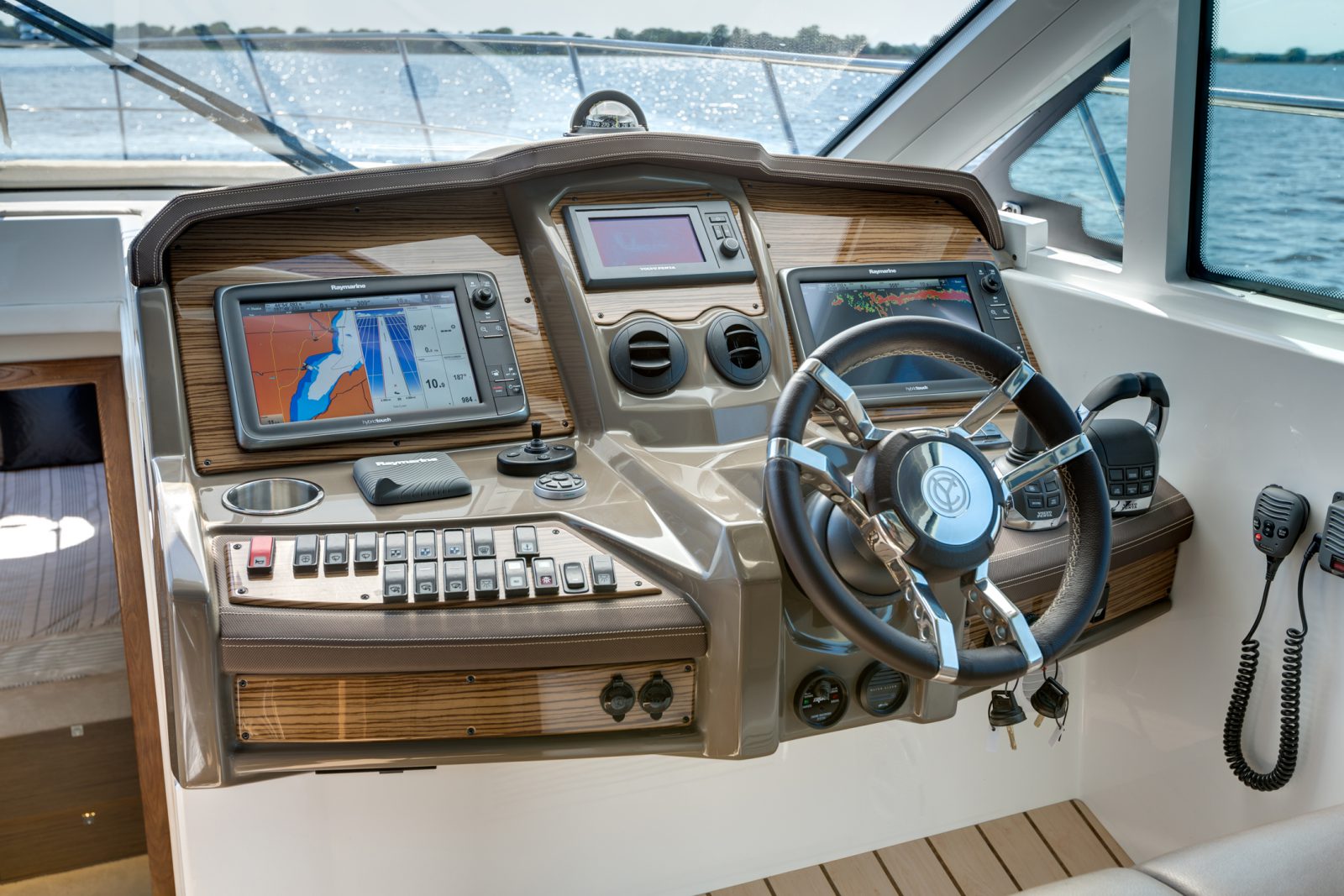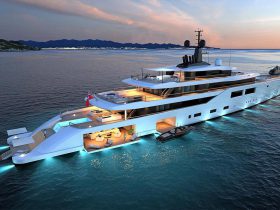If you have ever been shopping for a new boat, you may have noticed the terms “low hours” or “X amount of hours” on online advertisements.
These tag lines usually imply that the lower the hours, the better but, this isn’t necessarily always the case.
As someone who has inspected my fair share of boats, I have seen boats with “low hours” and boats with “many hours” and have seen the good, the bad, and the ugly on both ends of the spectrum.
So, before buying a boat based on the number of hours, here are some things you should also take into consideration.
Old Low Hour Boats
Hours on a boat are not the same as miles on a car.
If you find an old car that has been out of the sunlight, and away from salt water – in a clean garage, with low miles, then yes it is probably a winner.
However, if you find a boat that has been spending its days on a marina, on a mooring, or on a trailer – it may have low miles but can be severely weather buy sun, rain, salt, and hail or other weather conditions.
For example, say you see an ad online for a 2004 boat with 300 hours.
You would divide the 300 hours by 15 year and get an average of 20 hours of use per year.
Sounds really low but if that boat has been sitting on a waterway, it may have been growing barnacles (which ideally should have been cleaned each year) or may have not have had much maintenance, cleaning, or care.
So while the boat may have only had a few short trips per year, you will want to also consider what the boat was doing for the other parts of the days over the years.
Low Hours Boat Condition Considerations
When buying an older boat with low hours, you will want to consider more than just the hours.
From our experience, oftentimes the boat has been sitting for so long the owner doesn’t even know if there is anything wrong with the boat.
In fact, many boat owners assume that since a boat isn’t being used, it doesn’t actually need to be maintained.
Most boat manufacturers recommend a maintenance schedule of some sort or a minimum time per year, for example 100 hours a year.
The reason this is important is because you won’t know if something is wrong with the boat unless you actually drive it.
The boat could develop a small leak or perhaps a defect in the engine.
Other factors like sun exposure, salt water, birds, debris, etc will effect the overall condition of the boat.
So before purchasing an older boat with low hours, be sure to check the overall condition of the boat and perhaps consider getting a boat mechanic to do a quick inspection to identify any hidden issues.
Yes, low hours are good but they are good when due diligence is also done!

Old High Hour Boats
Boats with higher hours means they have been used a lot more.
From our experience, boats with higher hours tend to be in better overall condition because the owners have been using and caring for the boat.
Owners who actually use their boats will catch any issues like a leak, failing pumps, horn fails, etc.
Many owners who use their boats on a regular basis are also more inclined to maintain and service the boats so that they can continue to get good use out of them.
Winding Back Hours
One frequently asked question that we get is “can you wind back hours on a boat?”
The answer is yes, but it can be done in different ways depending on the year and type of boat.
Newer boats are more difficult to wind back and usually require it to be done by a dealer.
For example, if one engine has broken down, the dealer increases the hours on the new engine to make the hours equivalent.
On older boats, analogue gauges are fitted and some only run when the ignition is turned on.
Another scenario on older boats is the replacement of gauges all together, which runs them back to lower hours.
If this is the case, you can look at the service history and see what hours have been noted at each service.
Because hours can be adjusted back, this is another good reason why simply looking at boat hours isn’t the best factor in deciding whether a boat is good or not.
Higher Hours Boats – Are they Better?
This is a harder question to answer because it really depends on the type of boat and exactly how many hours we are talking about.
The question should really be “how many hours is the engine realistically good for?”
Some engines are meant to last longer while others may not have that kind of longevity in them.
As an example, 1,000 hours on a petrol V8 inboard with 350hp is a large sports cruiser and is considered to already be at their peak.
Petrol boats tend to last longer and be able to take on more hours.
As we said before, looking at high or low hours isn’t the only factor you should consider when looking for a used boat.
You will want to take into account the make, model, year and overall condition of the boat – in addition to the hours.


